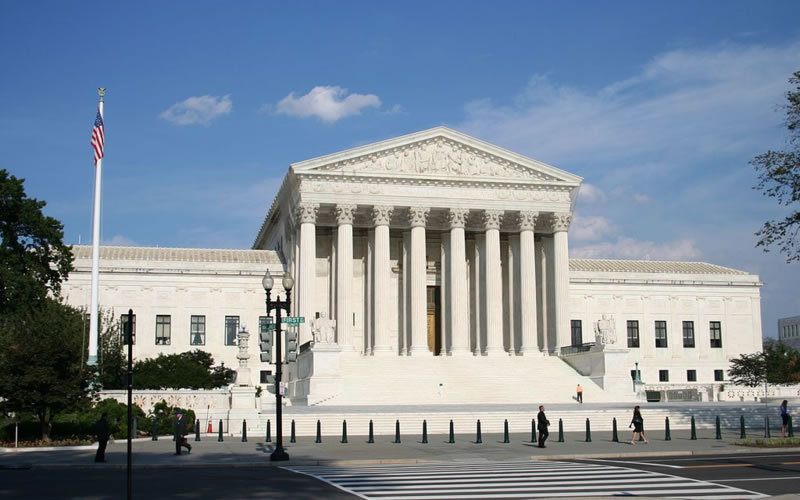
By Andy Brack, editor and publisher | The brouhaha over the next person who will sit on the U.S. Supreme Court is a political game of chess in which the people are being used as pawns.
![]() Unless you’ve been asleep under a rock, you know the issue started with the unexpected recent death of conservative Justice Antonin Scalia. Within hours, leading Republicans in the Senate said they wouldn’t confirm any nominee sent by President Barack Obama because they thought it was a job for the new president next year.
Unless you’ve been asleep under a rock, you know the issue started with the unexpected recent death of conservative Justice Antonin Scalia. Within hours, leading Republicans in the Senate said they wouldn’t confirm any nominee sent by President Barack Obama because they thought it was a job for the new president next year.
A pesky problem for the GOP is the U.S. Constitution, which says a president “shall nominate, and by and with the advice and consent of the Senate” judges of the Supreme Court. The clause in Article II has two parts. First, the president “shall” nominate a justice. Because Obama is the sitting president, the Constitution says it’s his responsibility to nominate. It’s not his job to wait or hand it over to the next president.
But the second part is that the Senate has to approve the nominee. The Constitution doesn’t set a time frame, although nominees to the high court usually get a confirmation vote within four months. Of the two nominees made by Obama, the average time for a confirmation vote after nomination was 77 days; the average time for President George W. Bush’s nominees was 53 days. Scalia, nominated by President Ronald Reagan, was confirmed 85 days after being nominated.
So the executive branch and legislative branch seemingly are at loggerheads. Some complain the GOP is politicizing the process, but guess what? Being confirmed to be on the Supreme Court is the ultimate politics. Why? Because the only real requirement for anyone to serve on the high court is that he or she get nominated by a president and get a majority of votes in the Senate. That’s right — you don’t have to be a lawyer to be on the U.S. Supreme Court. And getting votes, even if those votes are of a closed club of 100 senators, is the ultimate in politics.
There are several alternatives about what could happen, which are particularly important because the 2016 presidential elections are occurring as the court drama unfolds.
![]() First, Obama could make no nomination. If you believe this is a real alternative, let me sell you some land in southwestern Florida.
First, Obama could make no nomination. If you believe this is a real alternative, let me sell you some land in southwestern Florida.
Second, Obama will nominate, but the Senate will refuse to confirm. If this happens, the GOP will nationalize the issue (more than it has already) and the 2016 presidential election will become a referendum on whether the GOP is being obstructionist or rightly using its political power. (It’s a pretty good gamble, too, by Senate leaders the GOP will win the presidency and get a more conservative nominee to keep the center-right tilt of the court intact. If Democrats win — and if Hillary Clinton becomes president — they might eventually wish they had gone with Obama’s pick.)
![]() Third, Senate Republicans will unveil a September or October surprise and “break down” to have a confirmation hearing on Obama’s nominee. Such a development could be seen as a great political chess move, because it would show that they were willing to vet a nominee, all the while knowing that they wouldn’t confirm him or her.
Third, Senate Republicans will unveil a September or October surprise and “break down” to have a confirmation hearing on Obama’s nominee. Such a development could be seen as a great political chess move, because it would show that they were willing to vet a nominee, all the while knowing that they wouldn’t confirm him or her.
This third alternative also would allow the GOP to appear more reasonable to voters — something that may be key to winning the 2016 election. If they hold a hearing and give voters a well-reasoned argument about why the nominee is not qualified, then they don’t look like obstructionists … which ultimately throws the ball in Obama’s court earlier and may force him to make a more conservative nominee than he might normally make.
Time will tell. An interesting twist on the whole controversy is to consider the kind of justice that Scalia wanted to replace him: Someone who didn’t go to Harvard of Yale, like all of the current justices; someone from someplace other than California or the Northeast; a Protestant, even an evangelical Christian (the current justices are either Jewish or Catholic); and someone smart.



 We Can Do Better, South Carolina!
We Can Do Better, South Carolina!
























